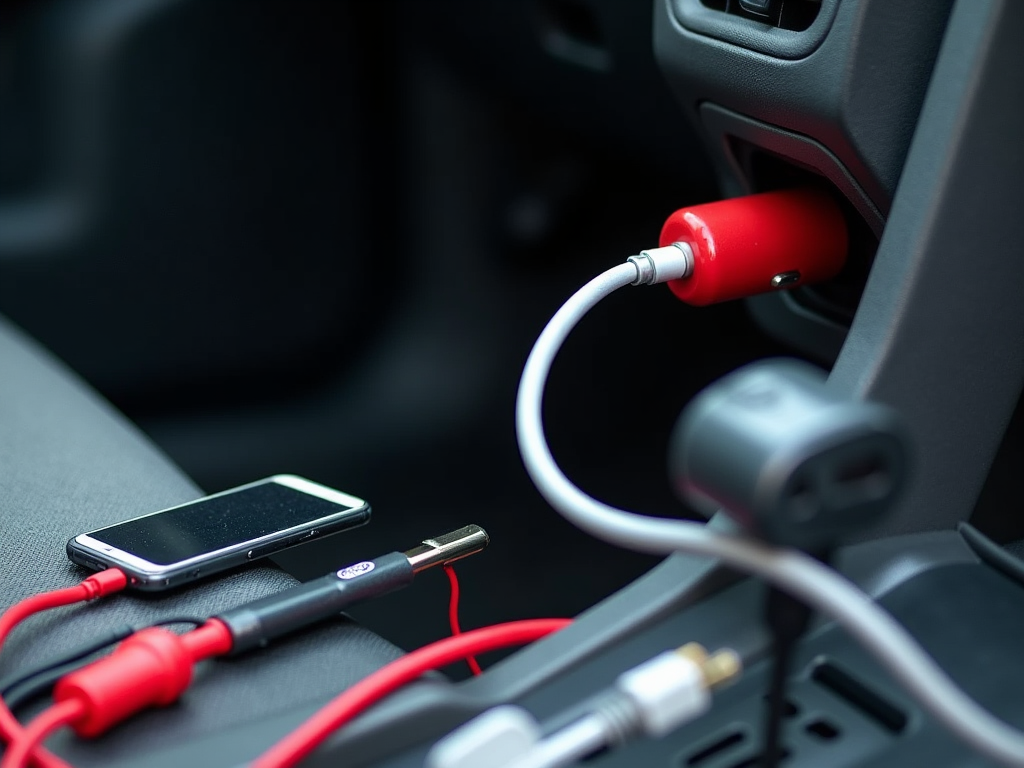When you’re on the road, staying connected is crucial. Your smartphone, tablet, and even other electronics require a reliable power source to keep you entertained, informed, and on track. Amidst the variety of car accessories available, a high-quality USB charger stands out as essential. The importance of having a dependable car USB charger cannot be overstressed, particularly when considering that running out of battery during a long journey can lead to more than just inconvenience; it can compromise safety and communication. Therefore, identifying a charger that meets both your needs and the requirements of modern devices is imperative.
When choosing the best car USB charger for your needs, it’s essential to consider specific features that can enhance your overall experience. Not all chargers are created equal; some offer faster charging capabilities, while others ensure multiple devices can be powered simultaneously without compromising safety. Delving into different aspects will help you make an informed decision that aligns with your charging needs and lifestyle. We will explore crucial features such as power output, port availability, safety measures, and compatibility with quick charge technologies.
Understanding Your Charging Needs

Assessing your charging needs is the first step in selecting the perfect car USB charger. Think about the devices you usually rely on during your commutes or road trips. Do you typically charge just your smartphone, or do you often find yourself powering a tablet, smartwatch, or even a portable gaming console? Understanding your charging habits can provide clarity on what you need from a charger. For instance, if you regularly travel with family, a multi-port charger can be invaluable. Contrastingly, if you’re often solo, a single-port charger may suffice. Nevertheless, don’t underestimate future needs, as changes in technology could mean new devices needing power.
Power Output

The power output of a car USB charger is a fundamental aspect that dictates how quickly your devices can recharge. Generally, the power output is measured in amperage and significantly influences charging speed. For optimal performance, a charger should ideally have a power output of at least 2.4A per port, allowing for faster charging capabilities that can be crucial on the go. Additionally, be sure to check voltage compatibility, as different devices may have varying requirements. Choosing a charger that matches your devices’ needs will save you time and enhance convenience, especially during long drives or daily commutes.
| Power Output (Amps) | Charging Speed | Device Compatibility |
|---|---|---|
| 1.0A | Slow charging | Older smartphones, basic devices |
| 2.0A | Moderate charging | Most smartphones, tablets |
| 2.4A or higher | Fast charging | Latest smartphones, tablets, larger devices |
Number of Ports
Consider the number of devices you need to charge simultaneously. The number of ports on a charger can determine its practicality during trips. A multi-port charger becomes exceedingly beneficial if you travel with family or friends, as it allows for multiple devices to charge at once, avoiding the pains of fighting over a single outlet. Moreover, the types of ports available, such as USB-A or USB-C, can also make a difference. Charging versatility ensures compatibility with all devices you carry. Hence, selecting a charger that balances both port quantity and types is wise.
Safety Features
When it comes to charging your devices, safety cannot be overlooked. Quality car USB chargers come equipped with a range of safety features designed to protect both your devices and your vehicle. It’s advisable to prioritize chargers that include overcurrent protection; this feature prevents excess current from flowing into your devices, which could potentially cause damage. Short-circuit protection is another crucial aspect to look for, as it helps safeguard against electrical failures. Choosing a charger with these features ensures peace of mind during use, allowing you to focus on the road ahead rather than worry about your electronics.
Compact Design
A compact design enhances the usability of a car USB charger and saves space within your vehicle. Many drivers appreciate the aesthetic and functional benefits of smaller chargers, which occupy minimal space while delivering powerful performance. Additionally, a sturdy build quality is essential; look for chargers that can withstand the rigors of daily use. The longevity of your charger is vital, especially when relying on it regularly. Therefore, selecting a compact, robust charger will grant you both convenience and assurance of its durability over time.
Compatibility with Quick Charge Technologies
In today’s tech-driven world, many devices support quick charge capabilities that can significantly reduce downtime. If you own devices that capitalize on these technologies, it’s wise to ensure your car USB charger is compatible. Chargers that support Qualcomm Quick Charge or USB Power Delivery (PD) can offer incredibly fast charging times, allowing you to get back to using your devices in no time. Checking the specifications for quick charge support is crucial for optimizing your charging experience.
Brand Reputation and Reviews
Researching brand reputation and customer feedback can shed light on the quality and reliability of car USB chargers. A product with a solid track record is usually indicative of performance and durability. Take the time to read user reviews; consistent positive feedback regarding functionality and longevity can guide your choice. Established brands often have a reputation to uphold, and they typically invest in quality manufacturing practices. Ultimately, opting for a reputable brand can provide an additional layer of assurance for your purchase.
Conclusion
Selecting the best car USB charger is an endeavor that entails evaluating several vital factors. Understanding your specific charging needs, examining the power output, and considering the number of ports available will enhance your overall experience. Furthermore, prioritizing safety features and compatibility with quick charge technologies guarantees that your devices remain safe and charged efficiently. Compact design and brand reputation are the final touches in making an informed decision, leading to a satisfactory and reliable charging experience. In summary, a well-considered choice will keep your devices powered and you connected while on the road.
Frequently Asked Questions
- What is the ideal power output for a car USB charger? The ideal power output would be between 2.4A to 3.0A per port for optimal charging speeds.
- Can I use a car USB charger for all devices? Most USB chargers are compatible with a range of devices, but always check compatibility specifications for optimal performance.
- Are multi-port chargers safe? Yes, as long as they include safety features such as overcurrent and short-circuit protection.
- What types of USB ports should I look for? A mix of USB-A and USB-C ports is recommended to accommodate different devices.
- Do compact chargers perform as well as larger ones? Yes, many compact chargers deliver the same power output as larger ones, but always check the specifications.





